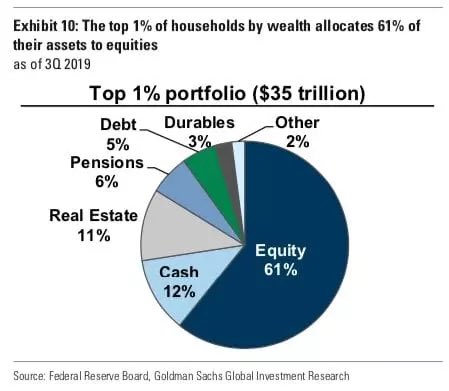Categories Economy
These tax avoidance techniques result in effective tax rates of ~0-2.5% https://t.co/R433UuKInX

Multinationals played a crucial role in lifting Ireland out of the last recession and they will again as we rebuild our economy after Covid.\xa0What does SF want to do? Tax them.\xa0https://t.co/B7n8esbzPN
— Leo Varadkar (@LeoVaradkar) October 11, 2020
MNCs have been a bright spot in a faltering domestic economy during Covid lockdowns. They’ve provided a much-needed, reliable source of inflows as other streams have dried up.
However, we’re not 12 years old, so let’s have a deeper dive, as this is not showing the full picture.

Leo and his ilk will try to lightswitch-brain you into thinking that raising taxes on MNCs will drive them away. You should be grateful!
In reality, largest threat is from US and EU tax reform. Take Biden’s tax reform proposals, which targets US MNC offshoring/“GILTI” profits

GILTI, or Global Intangible Low-Taxed Income utilities “Base Erosion” or “BEPS” to lower the taxable profit in the United States by shifting ownership of US IP into Irish tax jurisdictions.
I would wager targeting these techniques is popular on both sides of the isle in America.
This represents a significant geo-political and economic risk for Ireland. At any moment, any change, whether intentional or accidental can change the incentive structures for US MNCs, resulting in these companies pulling billions of IP from Ireland over night.
Post-industrial towns, run-down suburbs, coastal communities - these places were already struggling before the crisis and have fared worst in the last year.
What should we do?
Today, @ukonward sets out the beginning of a plan to repair our social fabric. It follows our extensive research over the last year, expertly chaired by @jamesosh, and funded by @jrf_uk, @Shelter and @peoplesbiz.
https://t.co/d3T5uPwG9N

Before I get into recommendations, some findings from previous Onward research.
In 2018, we found 71% of people believe "community has declined in my lifetime"
In 2019, we found 65% would rather live in “a society that focuses on giving people more security” vs 35% for freedom

This was the basis for our identification of 'Workington Man' as the archetypal swing voter in 2019, and led us to predict (correctly) that large numbers of Red Wall seats could fall. A key driver was a desire for security, belonging and pride in place.

There is also a key regional dimension to this. We also tested people's affinity with the UK's direction of travel, across both cultural and economic dimensions - revealing the extraordinary spread below: London vs. the Rest.
https://t.co/HrorW4xaLp

Hilarious. The WSJ editorial page bemoans the waning influence of The neoliberal priesthood, and hence their own. https://t.co/pQT8Dstg8I
— Nick Hanauer (@NickHanauer) January 28, 2021
So called economic "theories" like "you get paid exactly what you are worth" and "markets are perfectly efficient" and "when wages rise, jobs fall" and "raising taxes on the rich kills jobs and growth" and "increasing justice decreases economic efficiency" and...
"Government intervention in markets always creates more harm than good" and "any regulation that constrains corporations kills growth and productivity", etc etc are effectively a protection racket for the rich. It is a set of internally consistent and mathematized conjectures...
That are all demonstrably nonsense. But getting people to accept these "theories" as laws of nature and immutable, timeless truths is the most effective way our current economic elites have found to maintain and enhance the status of the powerful and persuade the weak and poor...
to shut the fuck up and accept their lot in life. Now, FINALLY, some economists- are actually beginning to look at the real world evidence to determine whether these propositions actually describe anything real here on planet earth. Let me save you some time. The answer is NO.
But here are some issues that deserve to be better discussed by all:
WTO backed by Western countries have always wanted to dismantle support systems for farmers in developing countries including India while pumping in federal payments to its farmers. Trump gave 46 billion dollars in 2020 alone to US farmers. pic.twitter.com/0V34ZQQq4J
— Ranveer Singh (@ranveersiiingh) February 4, 2021
1. People who say we are emulating the Western model of agriculture are way off with this assumption. The process of primitive accumulation, the alienation of their people from their land and the way these 'first-world' countries have pushed their people into Industrial sector +
+ was a merciless phase.
But the same assumption won't work for India, because we have always had a large workforce in agriculture, agri subsidies have always run high, protection has been the hallmark of agriculture and rural representation in the parliament has always been+
+ high. Still, it is our utter failure from the beginning that we have not been able to incentivize the movement of our people to other lucrative sectors.
2. This brings us to the another point of providing MSP on all the commodities and the demand side of the issue that we+
+ conveniently ignore. Here's the thing, Food prices in India have about 65-70% weight in calculating the Consumer Price Index and 25-30% of wholesale price index. These indices affect the general price level in the economy i.e. the inflation. If MSP is offered on all the+
Vol 70 Apr | '#Vote choices of left-#authoritarians: Misperceived congruence and issue #salience' by @NilsSteiner and Sven Hillen is now available @ches_data @german_gles #Germany https://t.co/pmCoP5t7CL pic.twitter.com/Vl8rCahcZL
— Electoral Studies (@ElectoralStdies) January 30, 2021
In the data from the Campaign Panel of the German Election Study 2017, many voters prefer higher social benefits and taxes and want to restrict immigration. @ches_data show that no party bundles issue positions in this way.
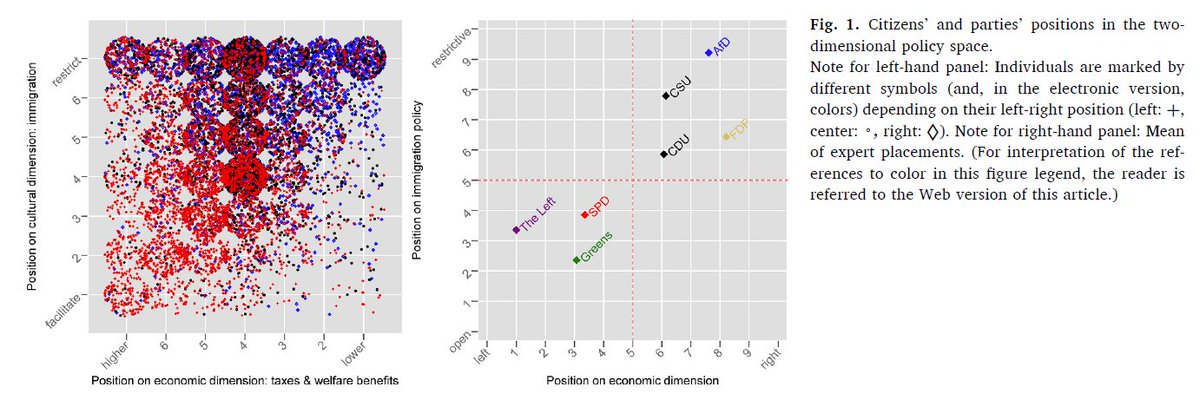
In the article, we show that many such “left-authoritarians” perceive the party they voted for to also hold a left-authoritarian position. Interestingly, this includes many AfD voters who report a perceived left-wing economic position of the party.
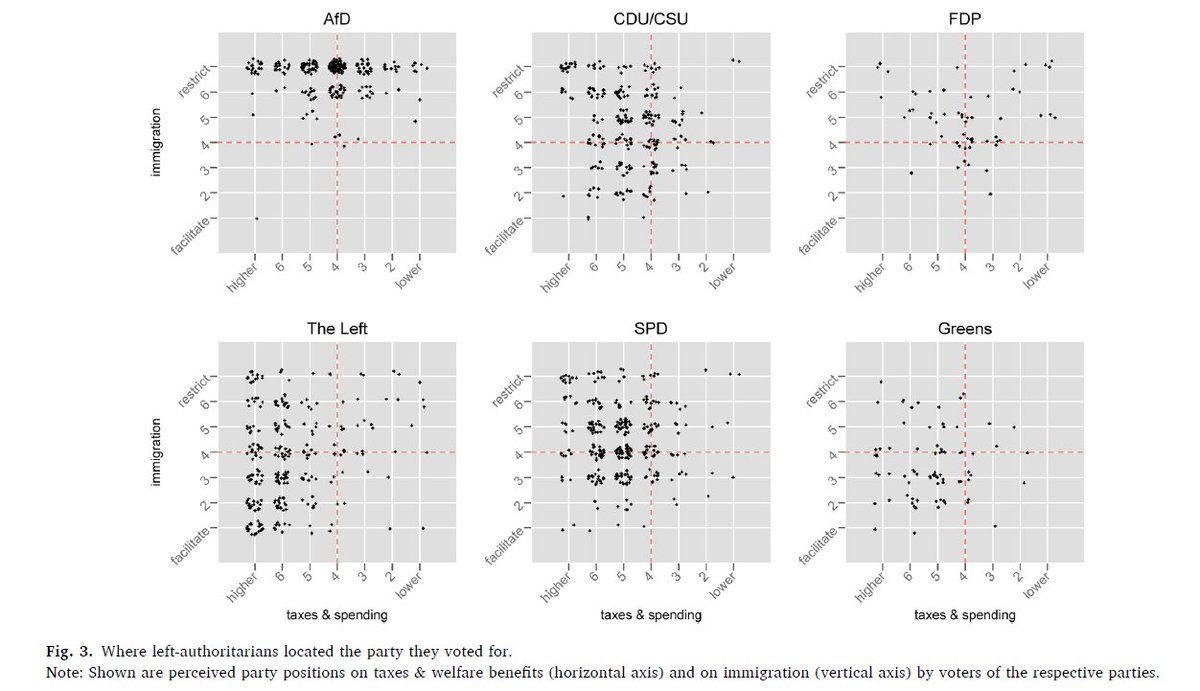
Our statistical models study the interplay between this (mis-)perceived congruence and issue importance, using an open-ended question on the most important political problem in Germany.
We find that (mis-)perceived congruence and issue importance interactively shape the left-authoritarian vote. Simply, perceived congruence matters more on an important issue—and issue salience matters most if voters accurately perceive incongruent party supply.
No.
"We also find no evidence of disemployment when we consider higher levels of minimum wages."
https://t.co/vlgagEHeyy
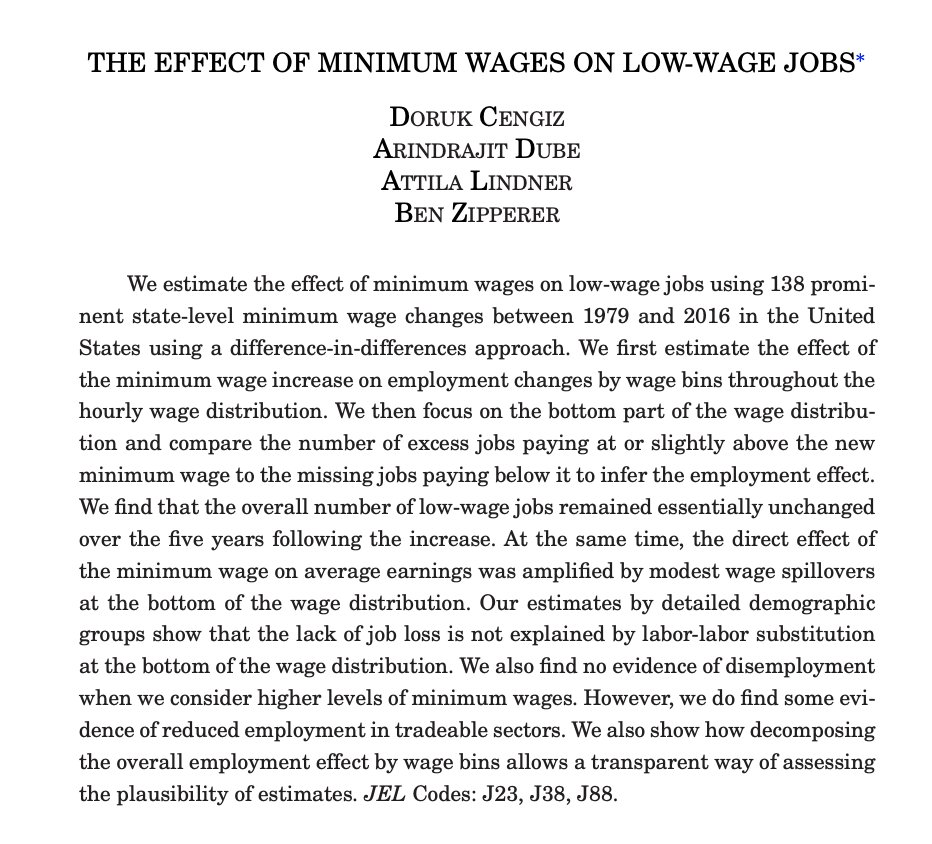
Minimum wage increases reduce crime.
https://t.co/1G1clXqF9t
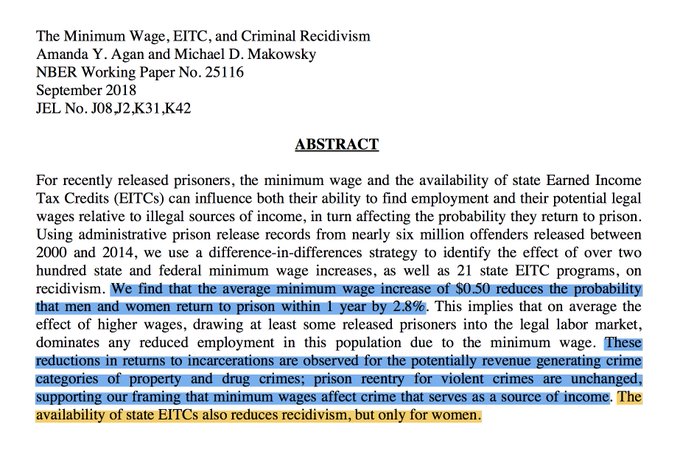
When you increase the minimum wage, you decrease infant mortality among poor families.
https://t.co/iwW1FDsLYG
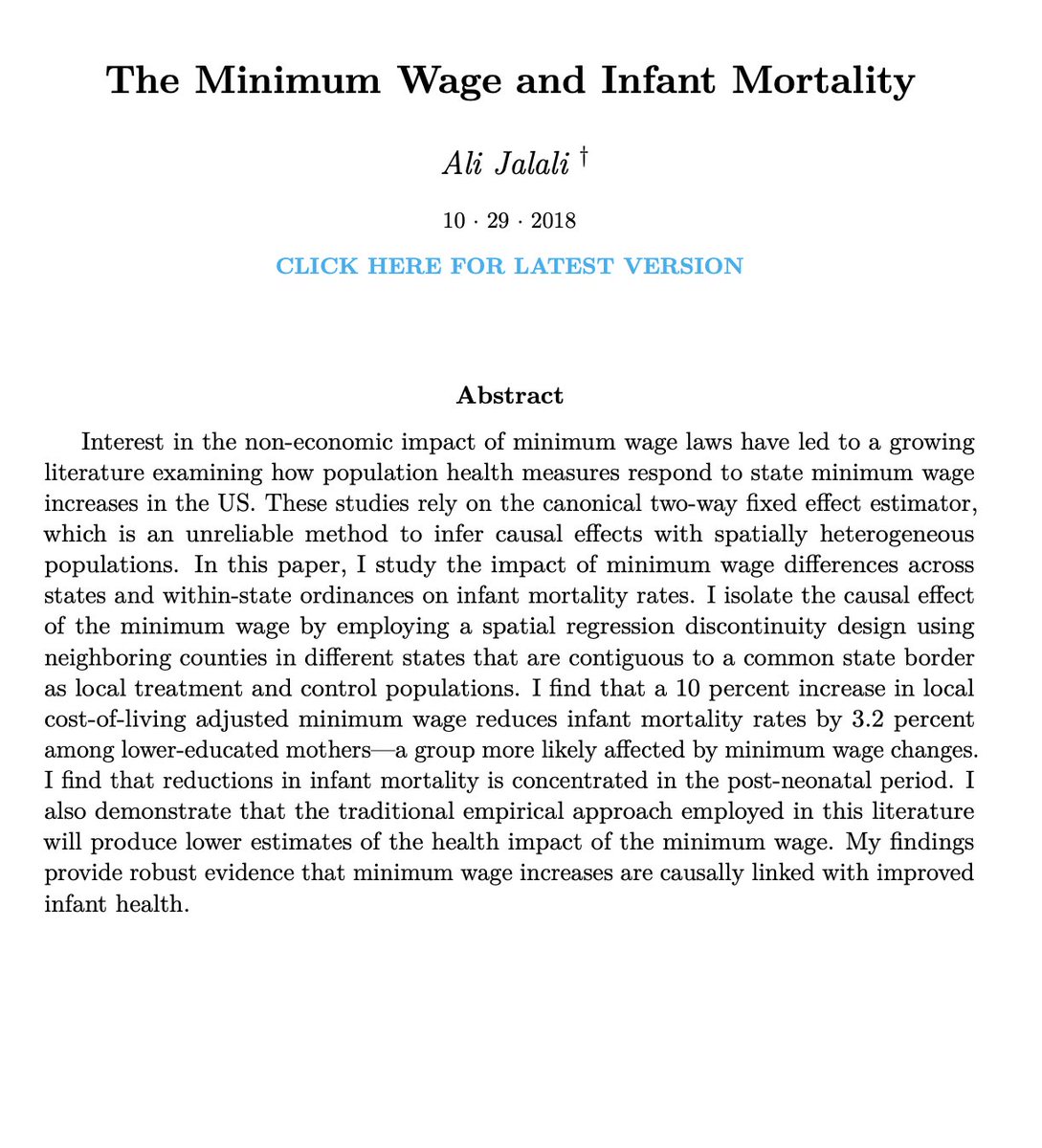
Increasing the minimum wage improves kids' health.
https://t.co/66DLHERpOJ
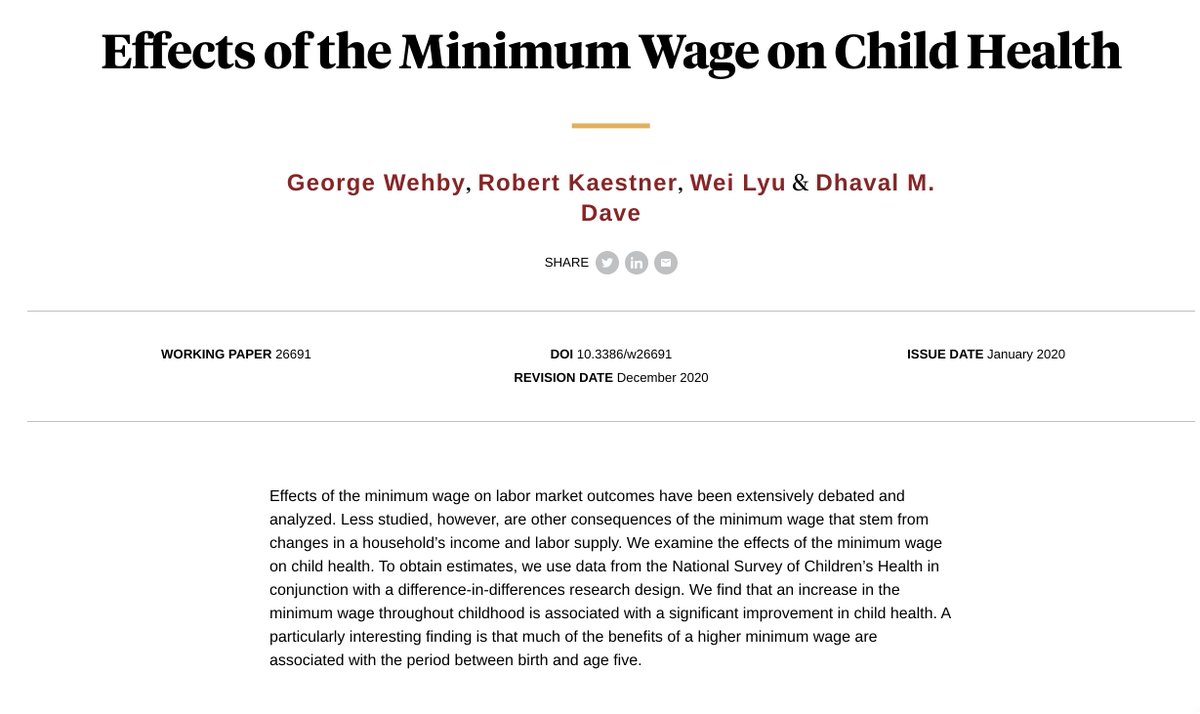
The minimum wage reduces racial income inequality.
https://t.co/wkn9Ajotlx
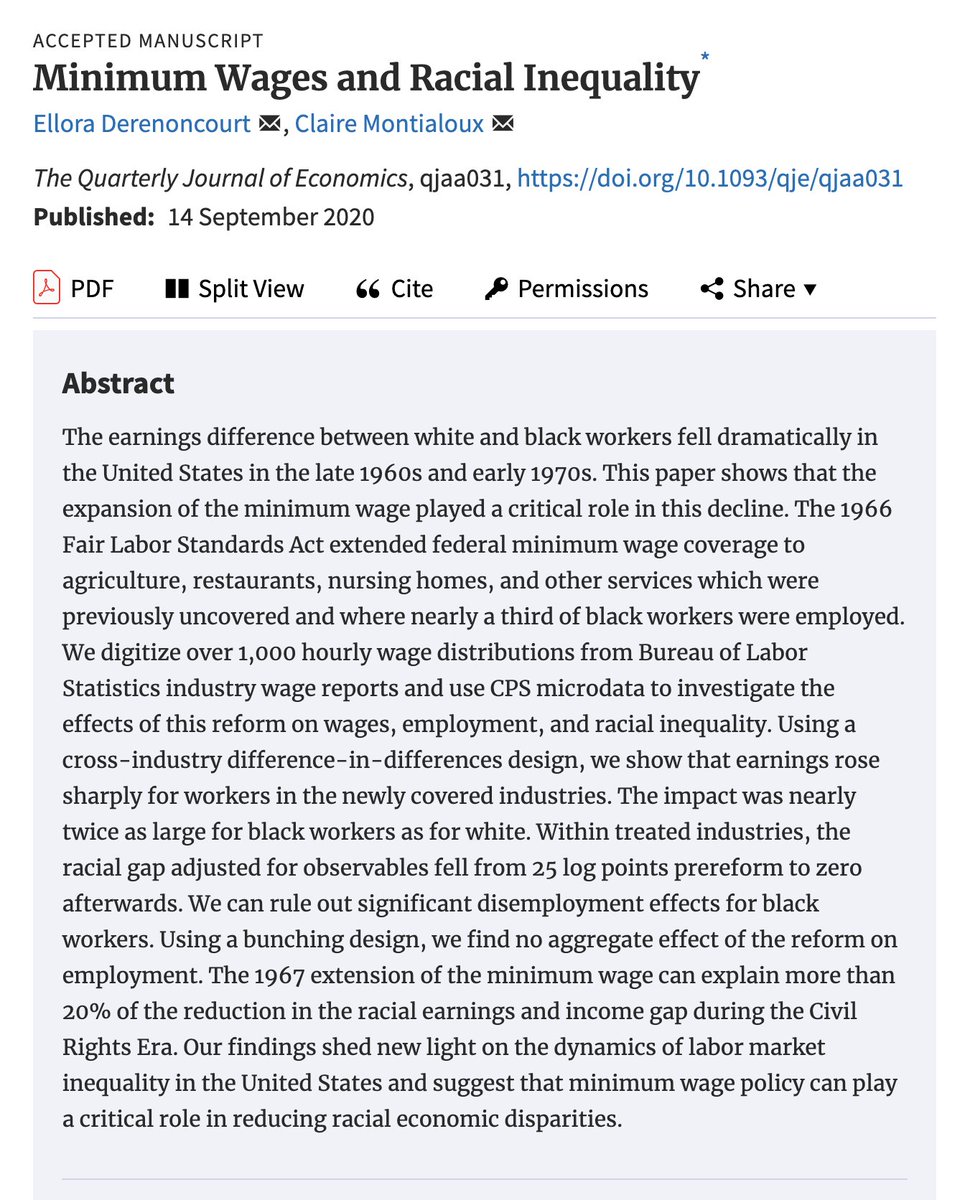
You get the impression from the eco-socialists and degrowthers that humanity wouldn\u2019t face the threat of climate change or biodiversity loss if it weren\u2019t for capitalism (or rather, if it weren\u2019t for capitalist modernity).
— Leigh Phillips (@Leigh_Phillips) February 2, 2021
But I see no evidence to suggest this is the case.
The historical counterfactual also in not totally convincing. So let's assume Germany and Europe went socialist. The world economy would have evolved exactly the same way it did? 🤔 I doubt it, this is too deterministic. Examples: /2
We do not know if the transition from coal to oil would have taken place when it took place, the way it did. From Timothy Mitchell we know that oil was a fix for capitalism to bypass the labour strikes of coal workers. One would think that socialists would treat workers better /3
We also do not know if socialist governments would strong arm the Middle East the way capitalists did, starting wars to secure cheap oil, and setting up puppet governments. One would want to think that Rosa Luxembourg would not go down that path..../4
We also do not know if they would have continued colonial unequal exchange, extracting raw materials as cheap as possible from the rest of the world. Without cheap oil and cheap materials, it is anyone's guess if GDP and CO2 would be where it is now. /5
[THREAD] 1/10
I know people think this is fun but -- why do we have a stock market? So productive firms can raise capital to do useful things. Detaching stock price from fundamental value (Gamestop is now worth almost as much as Best Buy) makes the markets serve the real economy worse.
— Josh Barro (@jbarro) January 27, 2021
What is profit? It's excess labor.
You and your coworkers make a chair. Your boss sells that chair for more than he pays for the production of that chair and pockets the extra money.
So he pays you less than what he should and calls the unpaid labor he took "profit." 2/10
Well, the stock market adds a layer to that.
So now, when you work, it isn't just your boss that is siphoning off your excess labor but it is also all the shareholders.
There's a whole class of people who now rely on you to produce those chairs without fair compensation. 3/10
And in order to support these people, you and your coworkers need to up your productivity. More hours etc.
But Wall Street demands endless growth in order to keep the game going, so that's not enough.
So as your productivity increases, your relative wages suffer. 4/10
Not because the goods don't have value or because your labor is worth less. Often it's actually worth more because you've had to become incredibly productive in order to keep your job.
No, your wages suffer because there are so many people who need to profit from your work. 5/10











